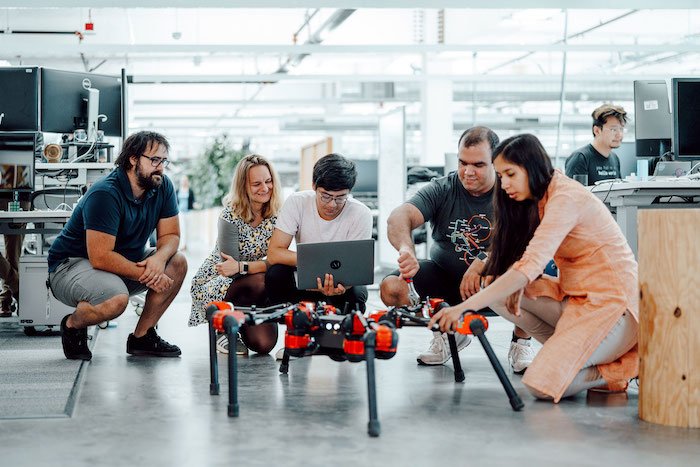Facebook uses robots to develop its AI
Hardware running reinforcement learning is helping the social network advance its artificial intelligence research


Facebook researchers are experimenting with robotics to learn more about AI, the social network has confirmed.
Although it is a high-tech company, as an online entity, Facebook hasn't historically been associated with hardware advancements. That said, it isn't uncommon for big firms to use robotics to develop AI research.
"Robotics provides important opportunities for advancing artificial intelligence because teaching machines to learn on their own in the physical world will help us develop more capable and flexible AI systems in other scenarios," said Facebook's research team in a blog post last week.
"Working with a variety of robots - including walking hexapods, articulated arms, and robotic hands fitted with tactile sensors - Facebook AI researchers are exploring new techniques to push the boundaries of what artificial intelligence can accomplish."
Facebook's research is focused on a hexapod robot (six-legged machine) and reinforcement learning which is a machine learning process for teaching an algorithm based on negative and positive reinforcement in a specific developmental environment. It differs substantially from the opposite method of training which is supervised learning.
The research team said its work aims to address the complexity inherent in using sophisticated physical mechanisms and conducting experiments in the real world. These complicated issues, such as where conditions are more variable and uncertain, and experiments have additional time constraints, can offer useful test cases for AI.
Facebook's project shows how the social network is using these self-supervised learning approaches to address essential challenges in this field of AI. It aims to develop robots that can move around in and explore their surroundings and manipulate objects they encounter. It hopes the research will lead to more capable robots but also, more importantly for Facebook, to an AI that can learn more efficiently and provide something that will be quickly and easily applied to other products.
Sign up today and you will receive a free copy of our Future Focus 2025 report - the leading guidance on AI, cybersecurity and other IT challenges as per 700+ senior executives
This method of using hardware to develop a product on the social network has already proved successful. For example, when the company launched its Portal home video chat camera, it worked with filmmakers to design camera movements that frame users for each shot. This helped the firm to develop a much more seamless experience.
Bobby Hellard is ITPro's Reviews Editor and has worked on CloudPro and ChannelPro since 2018. In his time at ITPro, Bobby has covered stories for all the major technology companies, such as Apple, Microsoft, Amazon and Facebook, and regularly attends industry-leading events such as AWS Re:Invent and Google Cloud Next.
Bobby mainly covers hardware reviews, but you will also recognize him as the face of many of our video reviews of laptops and smartphones.
-
 Will autonomous robotics leap forward in 2026?
Will autonomous robotics leap forward in 2026?In-depth Connectivity and cost benefits remain barriers, despite breakthroughs in physical AI
-
 AWS and NTT Data team up to drive legacy IT modernization in Europe
AWS and NTT Data team up to drive legacy IT modernization in EuropeNews Partnership between AWS and NTT DATA aims to boost AWS European Sovereign Cloud capabilities
